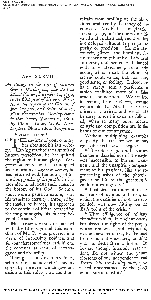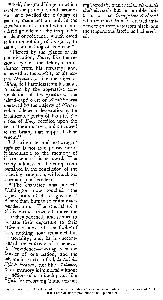 ―354― ―354―
Art. XXXVIII.
An Eulogy on the Life of General
George Washington, who died at
Mount Vernon, December 14, 1799,
in the 68th year of his age. Writ-
ten at the request of the Citizens of
Newburyport, and delivered at the
First Presbyterian Meeting-House
in that Town, January 2, 1800.
By Thomas Paine, M. A. New-
buryport. Blunt. 1800. 8vo. pp. 22.
“Americans!
“THE saviour of your country
has obtained his last victo-
ry. Having reached the summit of
human perfection, he has quitted
the region of human glory. Con-
queror of time, he has triumphed
over mortality; legate of heaven, he
has returned with the tidings of his
mission; father of his people, he has
ascended to advocate their cause in
the bosom of his God. Solemn,
'as it were a pause in nature,’ was
his transit to eternity: thronged by
the shades of heroes, his approach
to the confines of bliss: pæaned by
the song of angels, his journey be-
yond the stars!”
Most readers would be satisfied
with the title-page and this exor-
dium of Mr. P. who proceeds in a
strain of increasing boldness and
fervour that sometimes leads him to
the confines, at least, of extrava-
gance and absurdity.
Though serious, even to sadness,
with the melancholy reflections in-
spired by the event which gave oc-
casion to this eulogy, we could not
refrain from smiling at the abor-
tions produced by the fancy of the
eulogist. Mr. P. has imagination
and language, but the one is unculti-
vated and unchastized, and the other
is employed without any regard to
purity or precision. He mistakes
conceit, glitter, and bombast, for
eloquence and sublimity. Laboured
antithesis, and sentences balanced
with nice adjustment, frequently
occur, which mark the efforts of
art and contrivance, but not taste,
good sense, or feeling. Indeed, we
have rarely seen a performance
which exhibited more of a false
taste in composition. We are free
in making these strictures, because
we are told that Mr. P. has his ad-
mirers as a writer, and we should
be sorry to see his example follow-
ed, when so many purer models
of style and composition are in the
hands of our countrymen.
Without multiplying examples
to justify the censure we bestow,
we shall select a few passages:
“The robust vigour of his virtue,
like the undazzled eye of the eagle,
was inaccessible to human weak-
ness; and the unaspiring tempera-
ment of his passions, like the re-
generating ashes of the phoenix,
gave new life to the greatness it
could not extinguish.”
“That decisive moment in the
existence of nations and men, on
which the destinies of both are sus-
pended, was now flitting on the
dial's point of the crisis.”
“That effulgence of military
character which, in ancient States,
has blasted the rights of the people,
whose renown it had brightened,
was not here permitted, by the hero
from whom it emanated, to shine
with so destructive a lustre. Its
beams, though intensely resplen-
dent, did not wither the young
blossoms of our independence; and
liberty, like the burning bush, flou-
rished unconsumed by the glory
which surrounded it.”
 ―355― ―355―
“Self, the grand hinge on which
revolve the principles and passions
that have swelled the obituary of
nations, made not an unit in the
calculations of a mind which con-
sidered grandeur as the inseparable
incident of rectitude; which owed
to fortune nothing of its glory, to
enthusiasm nothing of its virtue.”
“Pierced by the glance of his
administration, Party, like the re-
creant eye of the felon, shrunk
abashed from his scrutiny; and,
unnerved by the sanctity of his per-
son, Degeneracy, like the viper at
Melita, fell harmless from his hand.
Appalled by the oppressive con-
templation of his greatness, the
'cloud-capt’ crest of Ambition was
overawed by the majesty of Virtue;
and, maddened to desperation by the
invulnerable purity of his life, the
snakes of Envy recoiled upon the
head of their mistress, and burrowed
to the brain, that supplied their
venom.”
Indiscriminate and extravagant
applause is not true praise, nor is
it honourable to the memory of
him on whom it is bestowed. The
daring boldness of the comparison
contained in the conclusion of the
following paragraph, will shock the
sober and pious reader:
“The character was perfect!
Washington now touched ‘the
highest point of all his greatness.’
A more than human splendour sur-
rounded him. The etherial spirit
of his virtues towered above the
globe they adorned, and seemed to
meditate their departure to their
native mansion. Of the frailty of
man, nothing now remained but
his mortality; and, having accom-
plished the embassy of a benevo-
lent Providence—having been the
founder of one nation, and the
sublime instructor of all, he took his
flight to Heaven; not like Mahomet,
for his memory is immortal without
the fiction of a miracle; not like
Elijah, for recording Time has not
registered the man on whom his mantle
shall descend; but in humble imi-
tation of that Omnipotent Architect
who returned from a created uni-
verse to contemplate from his throne
the stupendous fabric he had erect-
ed!”
|